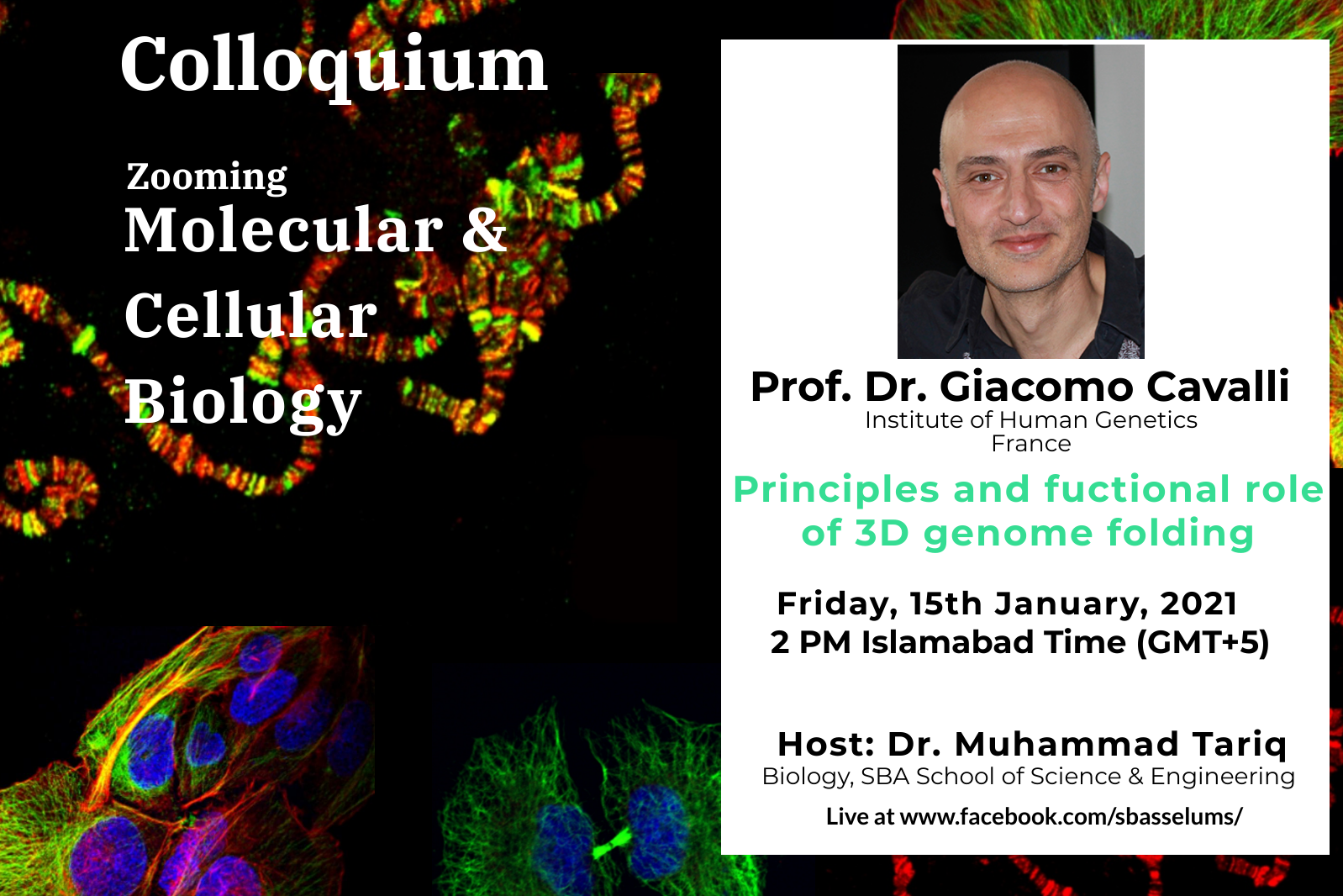
Principles and functional role of 3D genome folding
Giacomo Cavalli studied Biology at the University of Parma. In 1991, he moved to Zürich at the University of Science and Technology (ETH) to do his PhD, where he worked on chromatin structure and function in yeast with Fritz Thoma and Theo Koller. In 1995, he started a postdoc in the laboratory of Prof. Renato Paro at the University of Heidelberg. In 1999, he moved to IGH in Montpellier, France, to set up a junior lab and stayed at IGH ever since. Giacomo Cavalli made seminal contributions in the field of epigenetics. Using the fruit fly Drosophila melanogaster, he discovered that epigenetic inheritance of new phenotypes can occur independently on changes of the DNA sequence. His lab also discovered that the three-dimensional organization of chromosomes in the cell nucleus is a heritable trait that plays an important gene regulatory role.
The Cavalli lab identified 3D structural chromosomal domains dubbed Topologically Associating Domains or TADs. Finally, the Cavalli lab has shown that PcG proteins have tumor suppression activity in flies. Giacomo Cavalli has published more than 110 papers, cited over 13,000 times and many of which in top journals. He received numerous awards and distinctions, including an EMBO membership, the CNRS silver medal, the Allianz Foundation price, the Grand Prix 2020 of the Foundation pour la Recherché Médicale and two advanced ERC grants. He was director of the IGH Genome Dynamics department from 2007 to 2010 and IGH director from 2011 to 2014. He organized major international conferences and is appointed as members of several distinguished Institute- and Journal editorial boards.

